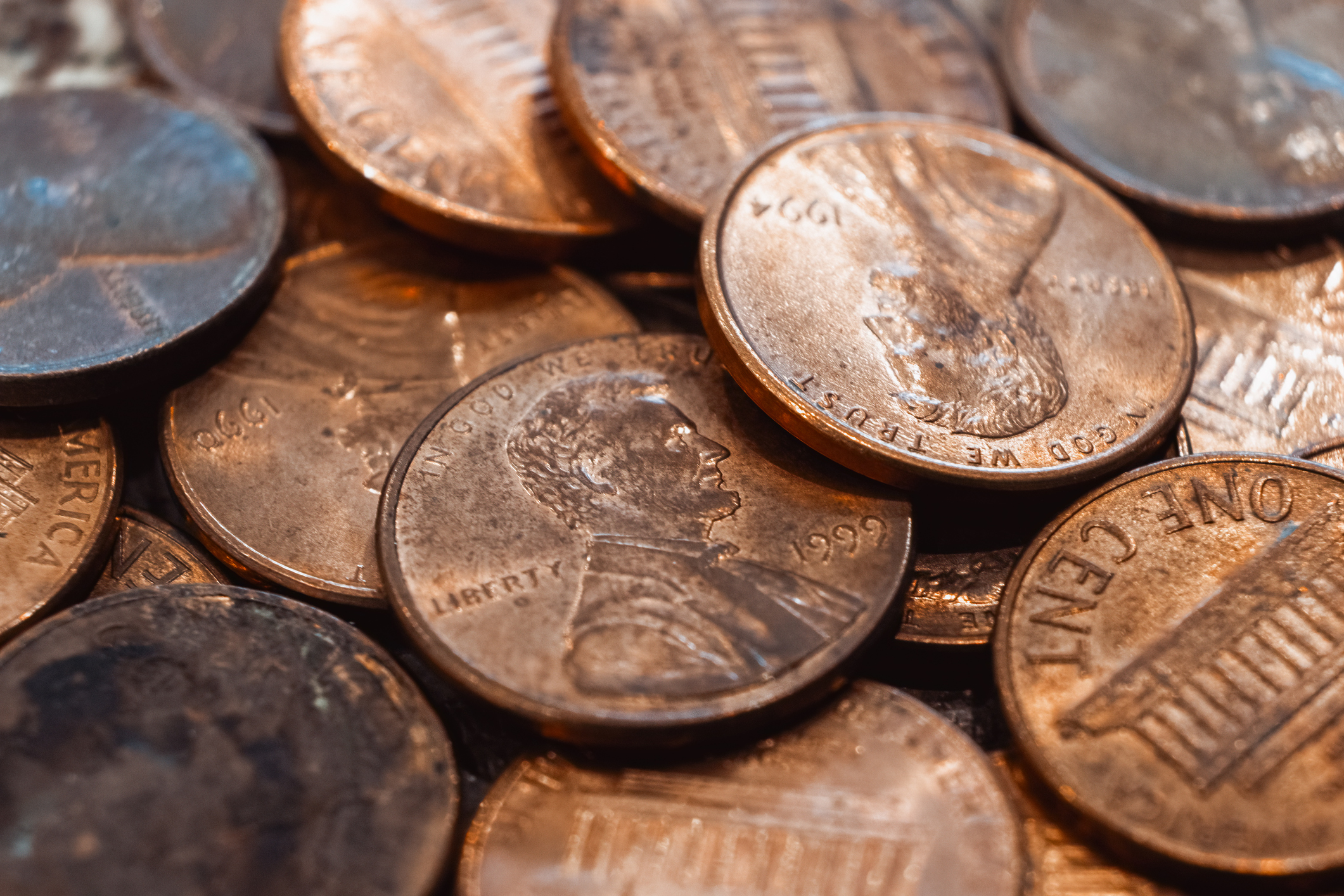The Worst Types of Stocks to Buy
The worst types of stocks to buy are those prone to extreme bouts of volatility that can create big headaches – and losses – for investors.


Profit and prosper with the best of Kiplinger's advice on investing, taxes, retirement, personal finance and much more. Delivered daily. Enter your email in the box and click Sign Me Up.
You are now subscribed
Your newsletter sign-up was successful
Want to add more newsletters?

Delivered daily
Kiplinger Today
Profit and prosper with the best of Kiplinger's advice on investing, taxes, retirement, personal finance and much more delivered daily. Smart money moves start here.

Sent five days a week
Kiplinger A Step Ahead
Get practical help to make better financial decisions in your everyday life, from spending to savings on top deals.

Delivered daily
Kiplinger Closing Bell
Get today's biggest financial and investing headlines delivered to your inbox every day the U.S. stock market is open.

Sent twice a week
Kiplinger Adviser Intel
Financial pros across the country share best practices and fresh tactics to preserve and grow your wealth.

Delivered weekly
Kiplinger Tax Tips
Trim your federal and state tax bills with practical tax-planning and tax-cutting strategies.

Sent twice a week
Kiplinger Retirement Tips
Your twice-a-week guide to planning and enjoying a financially secure and richly rewarding retirement

Sent bimonthly.
Kiplinger Adviser Angle
Insights for advisers, wealth managers and other financial professionals.

Sent twice a week
Kiplinger Investing Weekly
Your twice-a-week roundup of promising stocks, funds, companies and industries you should consider, ones you should avoid, and why.

Sent weekly for six weeks
Kiplinger Invest for Retirement
Your step-by-step six-part series on how to invest for retirement, from devising a successful strategy to exactly which investments to choose.
When it comes to investing in the stock market, not every pick is a sure thing and many well-established companies can quickly turn into the worst stocks to buy.
Take General Motors (GM), the iconic automaker that filed for bankruptcy during the Global Financial Crisis. More recently, amid interest rate volatility in early 2023, Silicon Valley Bank and Signature Bank both declared bankruptcy despite commanding more than $300 billion in collective assets.
These failures of seemingly stable firms are painful illustrations of how all investing carries risk. That said, there are some corners of Wall Street populated by small and risky companies that are much more likely to end in disaster.
There is no universal definition of the "best stocks to buy" or the "worst stocks to buy," as investor sentiment and the economic environment are constantly changing. But if you want to avoid investments that are most prone to trouble, you may want to steer clear of the following areas that are among the worst types of stocks to buy.

The worst types of stocks to buy: Micro-caps
Market capitalization is a common Wall Street statistic that measures a company's total value, based on the current share price time and the number of shares outstanding. A "micro-cap" stock is a company with very small market capitalization, normally $300 million or less.
For a stock with a low market cap, an investment of just a few thousand dollars can significantly move the price – making it ripe for manipulation by bad actors. Think of it this way: For a $10 billion company to increase 10% in a single trading day, there needs to be $1 billion added in. That's a pretty tall order. But if the company is only $10 million in market value, it's possible for a much more modest influx of investor capital to really move the needle.
Unscrupulous investors sometimes target micro-cap stocks for "pump and dump" schemes, where they talk up a given micro-cap stock and wait for others to pump up the stock price. After those gains are priced in, they quickly dump their shares and harvest profits – and the stock quickly falls back to earth.
The smaller the value of a company, the easier it is to manipulate its stock price. So generally, micro-caps are among the worst types of stocks to buy.

The worst types of stocks to buy: Penny stocks
Penny stocks are also found alongside micro-cap stocks, but this group is characterized by incredibly low share prices instead of low market values.
These kinds of investments are incredibly risky for two reasons. The first is the potential for manipulation, as with all other kinds of micro-cap stocks. But the other is that no company would ever voluntarily list its shares for just a few pennies apiece and its stock price has only wound up in that position after a spectacular decline.
Sometimes large companies crash and burn, and it's tempting to think that they are a bargain at just a few pennies per share. But it is incredibly uncommon for a stock that has cratered like that to turn things around and recover.
If you're looking to avoid the worst types of stocks to buy, long-term investors will generally want to steer clear of any stock that has suffered significant declines – particularly those that are now trading very close to zero.

The worst types of stocks to buy: Meme stocks
Meme stocks came into favor around 2020, fueled by a convergence of factors including mobile apps and zero-commission trading that reduced barriers to access. Online communities transparently sharing investing strategies and folks generally having way too much time on their hands during the pandemic also contributed to the gamification of stocks.
There are some success stories you'll read about. Meme stock traders with "diamond hands" who bought GameStop (GME) as a group and collectively held on until they made megabucks. But the problem with buying stocks promoted by online communities is that sometimes bad actors talk up their own investments and then quickly sell – similar to a pump and dump scheme, but this time reliant on the buying power of others. This is particularly true now that Wall Street banks with sophisticated trading desks are aware of the potential of meme stocks, they are intent on front-running everyone else.
Remember that old yarn from mom, something like: "If everyone jumped off a bridge, would you do it, too?" The same applies to meme stocks. It doesn't matter if everyone on the internet is talking about how perfect an investment is … chances are it's either not true, or you're the last to hear about it anyway.
Related content
Profit and prosper with the best of Kiplinger's advice on investing, taxes, retirement, personal finance and much more. Delivered daily. Enter your email in the box and click Sign Me Up.

Jeff Reeves writes about equity markets and exchange-traded funds for Kiplinger. A veteran journalist with extensive capital markets experience, Jeff has written about Wall Street and investing since 2008. His work has appeared in numerous respected finance outlets, including CNBC, the Fox Business Network, the Wall Street Journal digital network, USA Today and CNN Money.
-
 5 Vince Lombardi Quotes Retirees Should Live By
5 Vince Lombardi Quotes Retirees Should Live ByThe iconic football coach's philosophy can help retirees win at the game of life.
-
 The $200,000 Olympic 'Pension' is a Retirement Game-Changer for Team USA
The $200,000 Olympic 'Pension' is a Retirement Game-Changer for Team USAThe donation by financier Ross Stevens is meant to be a "retirement program" for Team USA Olympic and Paralympic athletes.
-
 10 Cheapest Places to Live in Colorado
10 Cheapest Places to Live in ColoradoProperty Tax Looking for a cozy cabin near the slopes? These Colorado counties combine reasonable house prices with the state's lowest property tax bills.
-
 Dow Adds 1,206 Points to Top 50,000: Stock Market Today
Dow Adds 1,206 Points to Top 50,000: Stock Market TodayThe S&P 500 and Nasdaq also had strong finishes to a volatile week, with beaten-down tech stocks outperforming.
-
 Stocks Sink With Alphabet, Bitcoin: Stock Market Today
Stocks Sink With Alphabet, Bitcoin: Stock Market TodayA dismal round of jobs data did little to lift sentiment on Thursday.
-
 Dow Leads in Mixed Session on Amgen Earnings: Stock Market Today
Dow Leads in Mixed Session on Amgen Earnings: Stock Market TodayThe rest of Wall Street struggled as Advanced Micro Devices earnings caused a chip-stock sell-off.
-
 Nasdaq Slides 1.4% on Big Tech Questions: Stock Market Today
Nasdaq Slides 1.4% on Big Tech Questions: Stock Market TodayPalantir Technologies proves at least one publicly traded company can spend a lot of money on AI and make a lot of money on AI.
-
 Fed Vibes Lift Stocks, Dow Up 515 Points: Stock Market Today
Fed Vibes Lift Stocks, Dow Up 515 Points: Stock Market TodayIncoming economic data, including the January jobs report, has been delayed again by another federal government shutdown.
-
 Stocks Close Down as Gold, Silver Spiral: Stock Market Today
Stocks Close Down as Gold, Silver Spiral: Stock Market TodayA "long-overdue correction" temporarily halted a massive rally in gold and silver, while the Dow took a hit from negative reactions to blue-chip earnings.
-
 Nasdaq Drops 172 Points on MSFT AI Spend: Stock Market Today
Nasdaq Drops 172 Points on MSFT AI Spend: Stock Market TodayMicrosoft, Meta Platforms and a mid-cap energy stock have a lot to say about the state of the AI revolution today.
-
 S&P 500 Tops 7,000, Fed Pauses Rate Cuts: Stock Market Today
S&P 500 Tops 7,000, Fed Pauses Rate Cuts: Stock Market TodayInvestors, traders and speculators will probably have to wait until after Jerome Powell steps down for the next Fed rate cut.
